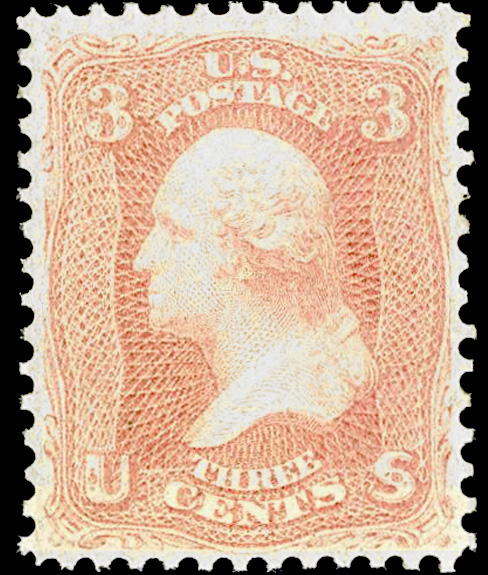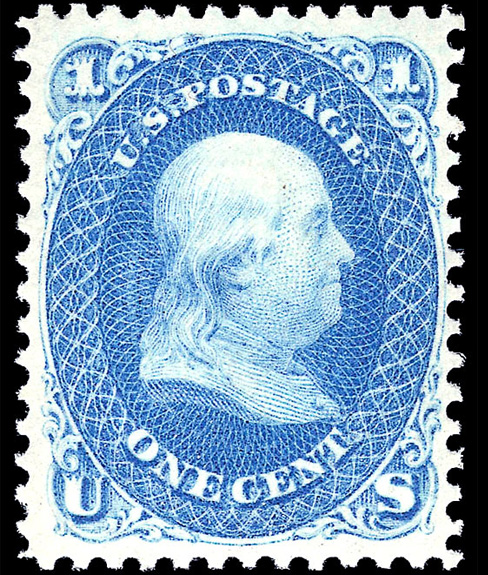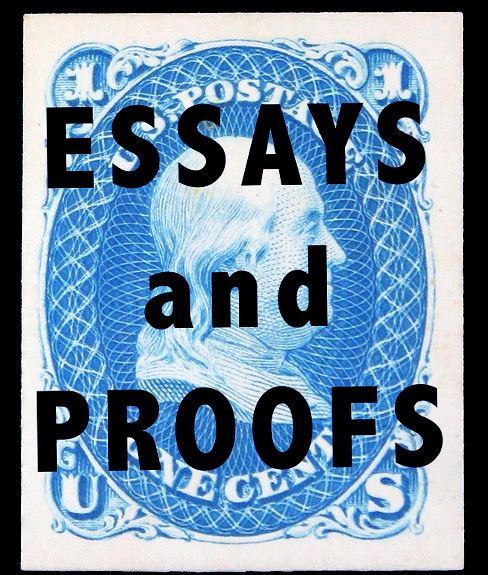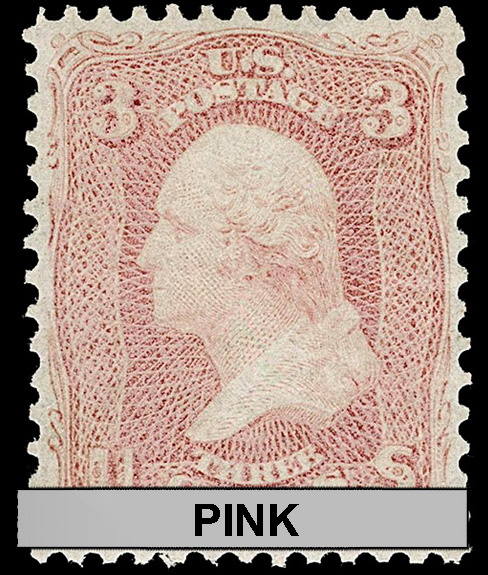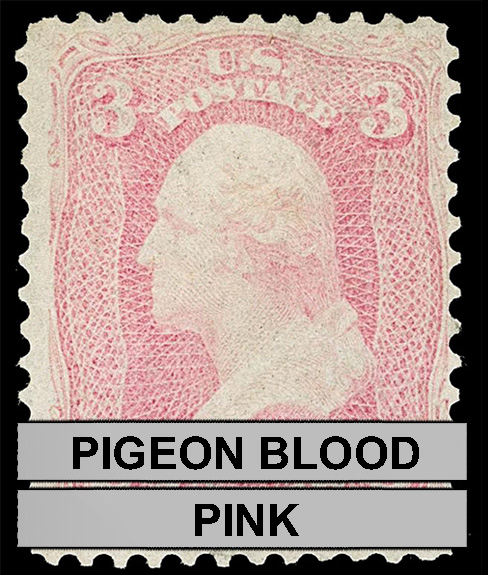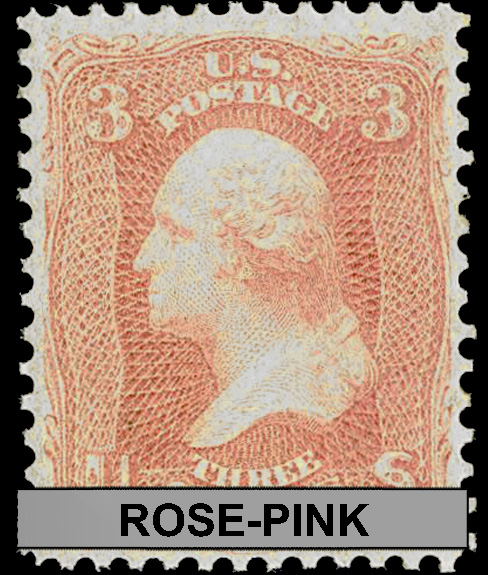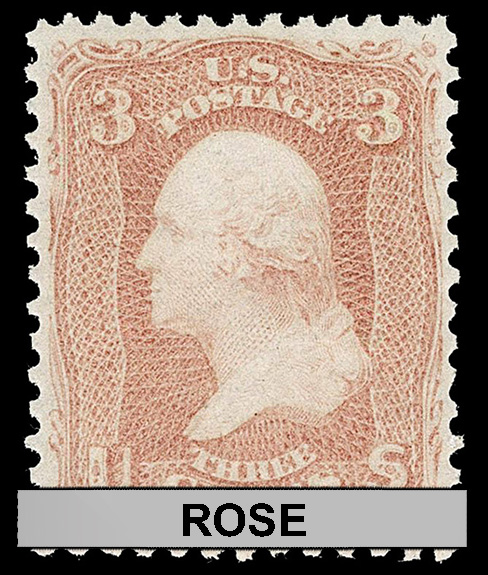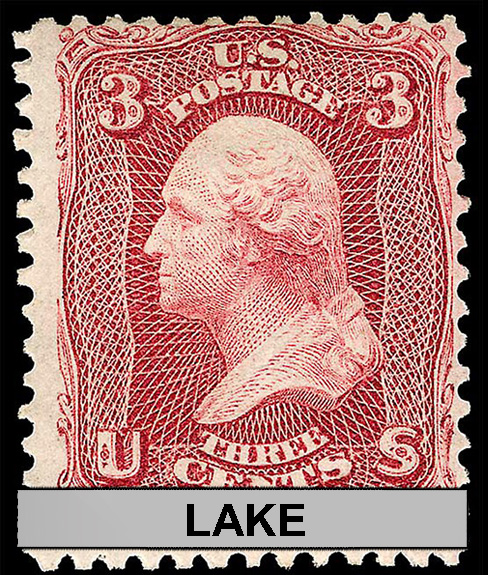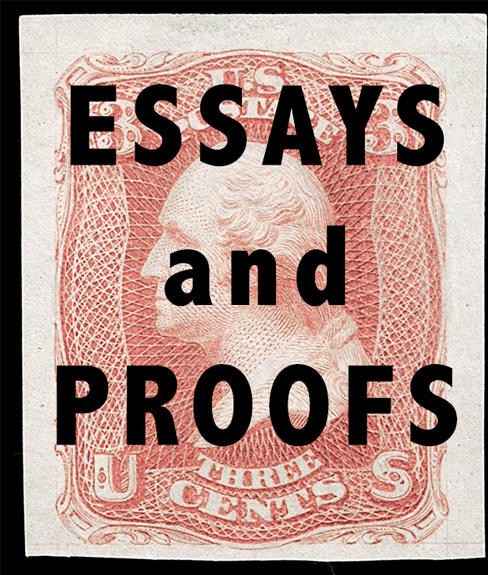Basic Info
3¢
Rose Pink
Printing Method: Engraved
Printier: The National Bank Note Company
Subject: George Washington
Number issued: not known
Perforations: 12
Watermark: Unwatermarked
Scott #: 64b
IEarliest date of use: August 17th, 1861
Value
Used
$150 - $200
No postmark with gum (MH)
$160 - $300
Full perfect gum, no postmark
no trace of stamp hinge mark (MNH)
$800 - $1,100
Notable Sales

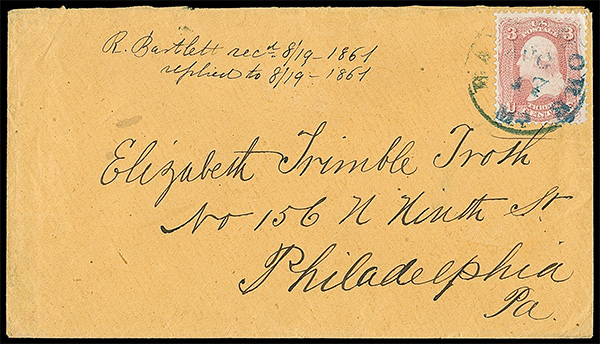
The unique first day cover, August 17th, 1861
Sold October 2018 for $16,520
Explore Robert Siegel's Auction Galleries
The Design Instigator
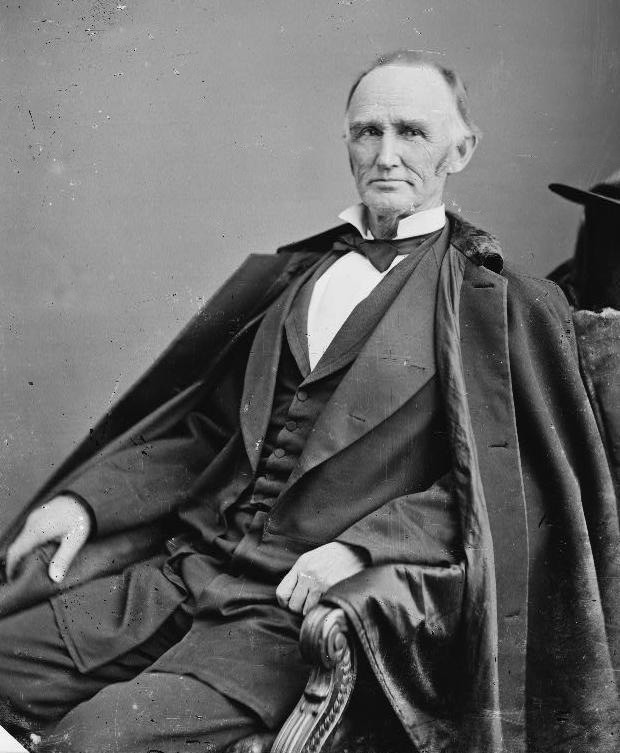
Montgomery Blair was the Postmaster General at the time. He was an ardent and loyal Lincoln supporter. He was enthusiastic in his drive to deprive the South of both a mail service and Federal Stamps. His haste only led to delays in the transition and the birth of various schemes by entrepreneurs to profit from the change. He was fortunate in that new designs had already been prepared prior to his tenure and thus he was able to implement his plans a little more quickly than possible.
Patriotic Covers
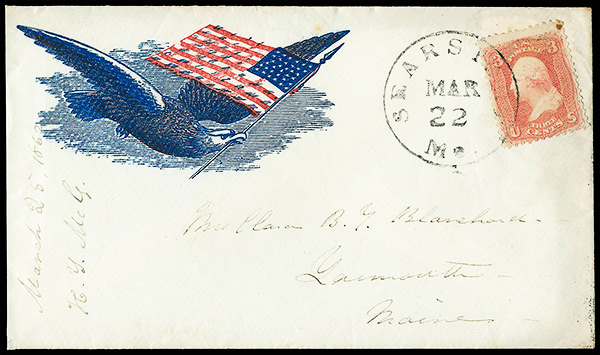
Union patriotic cover with #64b
Due to the Confederacy we need to change the design!
By an Act of Congress passed in 1845, and continuing thru the life of the 1847 issue, 5c was the single letter rate for all distances not over three hundred miles.
Union authorities assumed that a large number of the 1856 1¢ issue remained unaccounted for in the hands of Confederate Postmasters. To prevent fraudulent use of these stamps, Congress authorized the design and production of the 1861 1¢ to replace the old stamp design as soon as possible.
The department scheduled distribution of the new stamps and envelopes for the 1st, August, but, from unavoidable delays, distribution did not take place until August 17th.
You have seven days notice to do so!
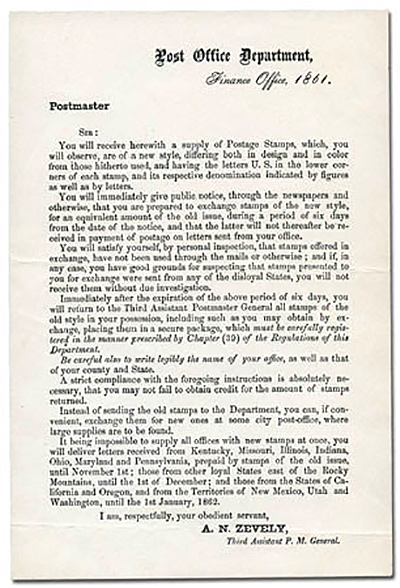
A notice went out to Postmasters declaring that they could exchange the old design for the new design, but they only had seven days to do so. After that point, all the old designs would be demonetized and therefore of no value. This notice was an abject failure, and the period of grace was twice extended, all the way up to November.
Some of the border states of the confederacy kept the stocks of the new design. Although invalid in the Southern States, they were happy to sell at 50¢ on the $ to postmasters in Union Kentucky.
The Postmaster General declared that no from the North would be delivered to the South by the US Postal Service. This was also a failure. It prompted two companies in Kentucky to start a roaring business delivering mail across the border. These companies then smuggled guns, slaves, and all sorts of contraband during the course of the civil war.
Stamp usage
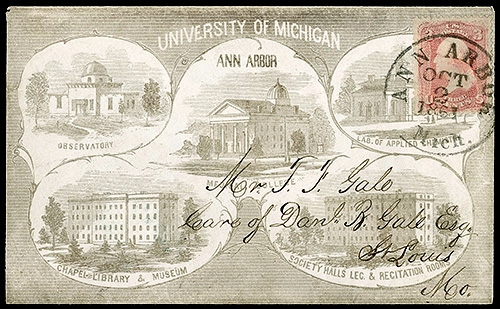
The 3¢ stamp pre-paid the half-ounce first-class rate
